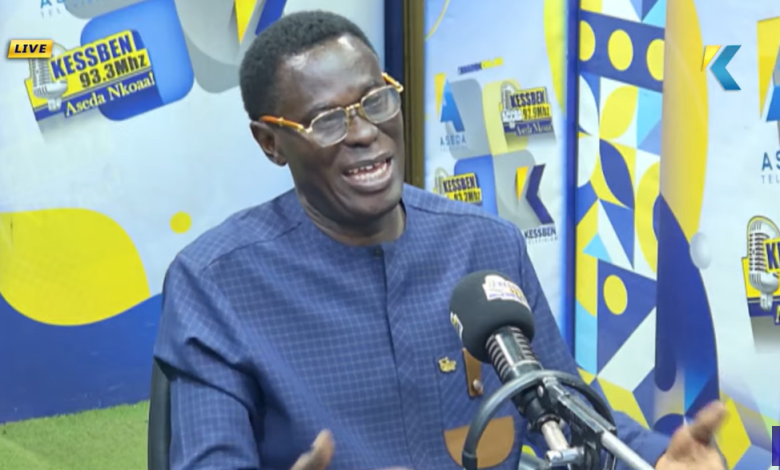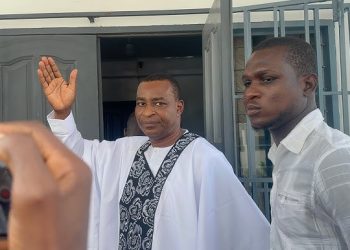Are All Politicians Corrupt? Hon. Akuoko Frimpong Urges Ghanaians to Reflect on NPP vs. NDC Performance

Hon. Akuoko Frimpong challenges the belief that all politicians are corrupt and highlights key differences between the NPP and NDC in Ghana.
Are All Politicians Corrupt in Ghana? Hon. Akuoko Frimpong Offers a Different Perspective
In Ghana’s current political climate, many citizens share a growing belief that all politicians are corrupt or ineffective, regardless of which political party they represent. This sentiment, driven by years of disappointment, unfulfilled promises, and frequent scandals, has led to a widespread distrust of leadership. But according to Hon. Akuoko Frimpong, this mindset is not only misleading—it’s dangerous.
Frimpong has urged Ghanaians to take a more critical and informed look at the nation’s two major political parties, the New Patriotic Party (NPP) and the National Democratic Congress (NDC). He argues that the belief that “all politicians are the same” hinders national progress and overlooks the very real differences in policy, leadership style, and outcomes between the two parties.
NPP vs. NDC: Recognizing the Performance Gap
Frimpong stated that the performance gap between the NPP and NDC is becoming increasingly evident, and citizens must reflect on these differences as Ghana prepares for future elections. While acknowledging some gains under the NDC government, he believes the NPP’s historical commitment to economic transformation, innovation, and integrity provides a stronger and more sustainable foundation for national development.
Policies like Free SHS, One District, One Factory (1D1F), and digital innovations such as the Ghana Post GPS system were mentioned as examples of impactful and forward-thinking governance under the NPP. According to Frimpong, these initiatives demonstrate a long-term vision aimed at empowering Ghana’s youth and strengthening the economy.
In contrast, although the NDC has contributed to infrastructure development and social initiatives, Frimpong argued that their approach lacks the innovative edge and structural reforms necessary for transformative progress.
Challenging the “All Politicians Are the Same” Mentality
Frimpong strongly condemned the common narrative that paints all political leaders with the same brush. He warned that this kind of generalization discourages credible, honest individuals from entering politics and fuels public apathy, especially among Ghana’s youth.
While recognizing that criticism of politicians is part of a healthy democracy, Frimpong emphasized that such critiques must be evidence-based, comparing specific party policies, track records, and real-world outcomes. Blanket distrust, he warned, only empowers mediocrity and weakens political accountability.
A Call for the NPP to Return to Its Roots
As part of his broader message, Hon. Frimpong also called on the NPP to return to its founding principles. These include a focus on economic discipline, innovation-driven governance, and ethical leadership. He noted that these values once distinguished the NPP from other political parties and earned the trust of the Ghanaian people.
To regain its influence and credibility, the NPP must reaffirm these values—not just in words but through action and policy. This, he believes, is the path to restoring faith in political leadership and setting Ghana on a course toward sustainable growth and national unity.
As Ghana moves toward its next political chapter, Hon. Akuoko Frimpong’s message is clear: not all political parties or leaders are the same. While skepticism is justified, citizens must go beyond generalizations and evaluate leaders based on performance, integrity, and vision.
Only through informed political participation can Ghana continue to build a democratic system that truly serves its people.
